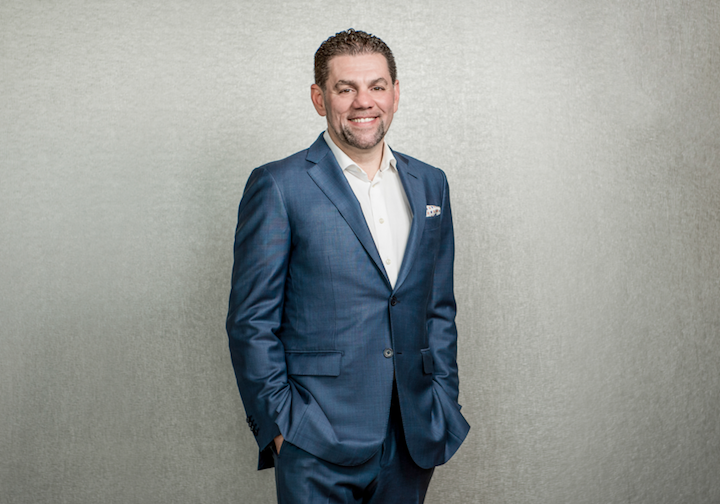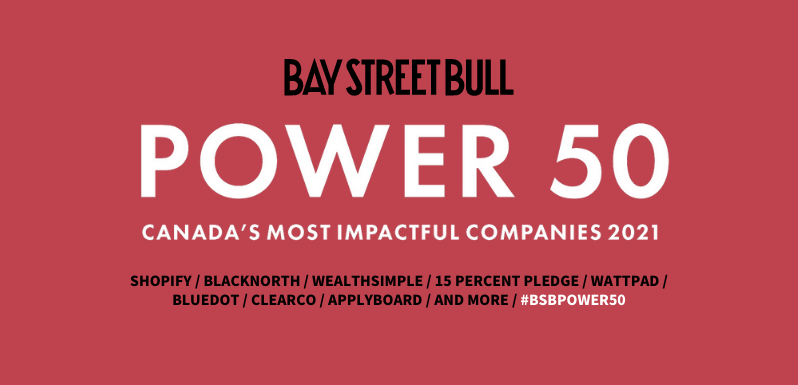Mohamad Fakih has a reputation that precedes him. He is perhaps known as much for his philanthropic endeavours as he is for his business Paramount Fine Foods, the fastest growing Middle Eastern Halal restaurant chain in North America. It’s a part of his business thesis: to embrace a purpose-driven approach that supports the company’s people and community (and ultimately, the bottom line.)
Fakih, who fled war-torn Lebanon when he was 16, has spearheaded a number of initiatives that have changed lives. In 2017, when a white supremacist killed six and wounded nearly 20 people in a mass shooting at the Islamic Cultural Centre of Quebec, Fakih was there to cover funeral expenses and building repairs. When Toronto saw a cold spell in 2017, he placed the homeless in hotel rooms. He was there to aid the victims of Ukrainian Airlines Flight 752 by organizing fundraising efforts in the Canada Strong Campaign, which raised over $3 million dollars, and also hired more than 150 refugees during the Syrian refugee crisis in 2015. Recently, Fakih is supporting frontline healthcare workers in long-term care homes with a goal of delivering 30,000 hot meals and over $85,000 through Paramount’s ‘Food for the LTC Frontline’ initiative in partnership with SEIU Healthcare.
Fakih is a community champion through and through, and his business philosophy reflects this. Here, he discusses his love of food, working with refugees, and why prioritizing your team before your customers is the best way to build a game-changing business.
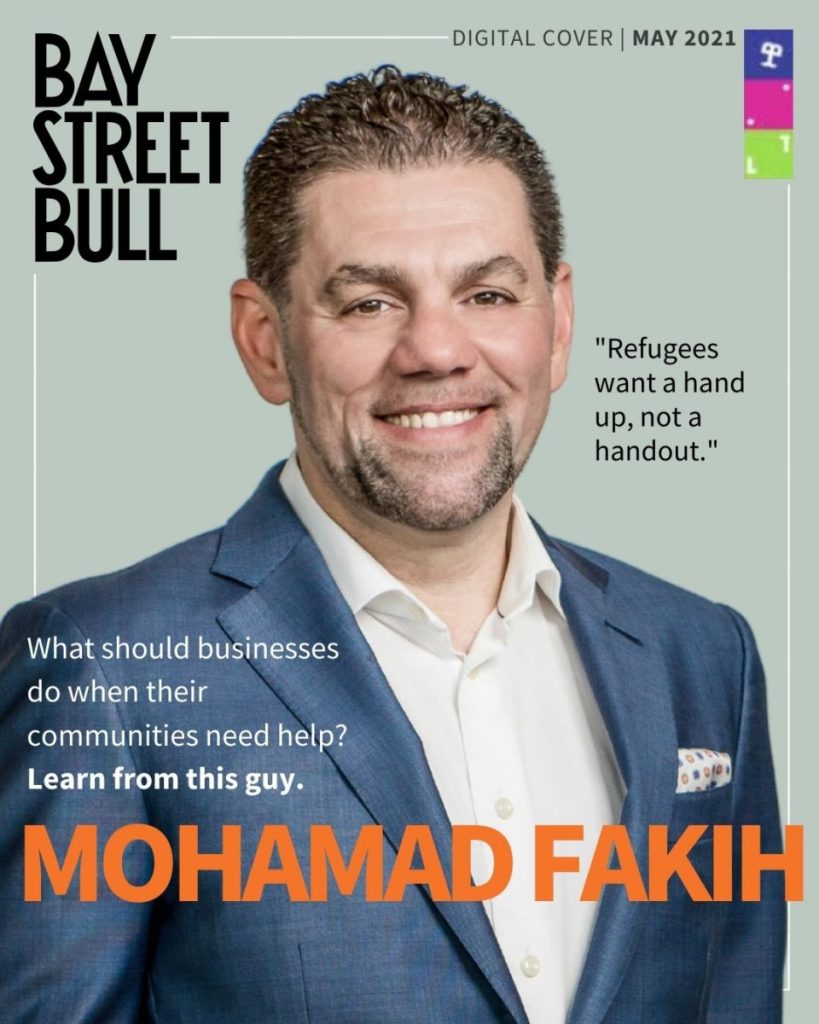

What do you love most about food?
I love how food brings people together. Every single community and faith has something special about food that is a celebration and brings people together. I truly believe that breaking bread is a way to resolve a lot of the world’s problems. You start talking about your family and your culture, and people get to know you. You realize that we are more alike than we are different. To understand a culture, you have to taste the food. It says a lot about us.
You’ve spoken previously about how the success of your business stems from your determination to change perceptions around Middle Eastern food. What are some of the misconceptions that you’re trying to break or educate on, and why is it important to do so?
It’s both the misconception of the food and culture, together. A restaurant does not just sell food, it sells the whole experience and memories around that food. People hear about Middle Eastern food and [think] the wrong things because of what they see on [online]. Halal is political because it is Muslim, which has never had a good reputation in the media and news. People assume that every Mohammed, Ali, and Hassan has done something wrong. But not every Mohammed is like the one that you’ve heard about on the news. We have to give these kids an opportunity to validate themselves and be celebrated like every other Canadian.
How has your perspective on business changed over the last year?
I call it the ‘Four P’s’—People, Purpose, Planet, and Profit. If you look after your community, and you’re responsible towards the planet, people will support you. You’ll get the best talent in the business and customers will be loyal, so you’ll get profit. In 2020, we had to add another ‘P’: Pivot. We had to pivot to give more options to the consumer. The way I saw the pandemic is how I see business. We needed to be a little bit like a shark, and a little bit like a goldfish in order to survive. The shark must keep moving forward, and the goldfish has a very short memory—you can’t fall into the trap of getting nostalgic about how things used to be. You can’t live in the past. When restaurants closed a year ago, we immediately transformed our indoor space to maximize its use for takeout and delivery. What we did differently was we launched new concepts to [COVID-proof] our restaurant. When the pandemic hit, people wondered how many were going to be sent home but you don’t kick out your family when there is a problem. It doesn’t work, and it tested our culture. We saved the staff by launching a new concept.
RELATED: How to Take a Ghost Kitchen Approach Without Turning Your Brand Into a Ghost
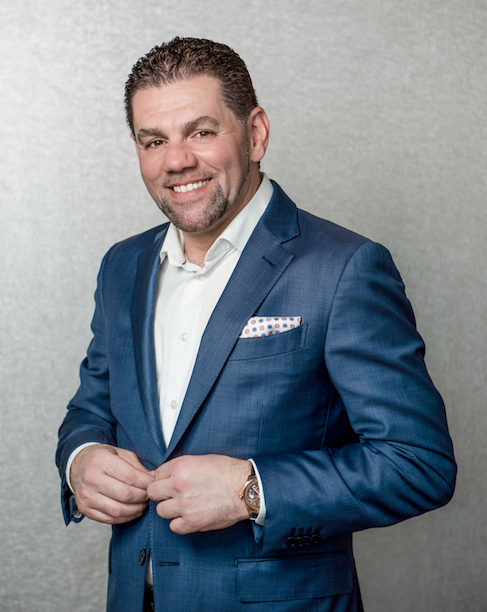

How did you deal with the mental pressure of operating a business during the pandemic?
I’m a very optimistic guy. Sometimes people find it annoying because in the middle of the pandemic, despite the fact that I was very sad about the people who were passing and dying, I was optimistic because I knew from the war [in Lebanon] that the light would come. We will come out of this if we actually believe that we are stronger, and if we do it together and respect each other’s experiences.
You came to Canada as a refugee in 1999, and now you’re an ambassador for the United Nations High Commissioner for Refugees. What do you wish people understood better about refugees? How can business leaders better help immigrants and refugees build a foundation?
I was faced with criticism when I supported the Syrian refugees who came here; we hired 150 of them. When I went to the border between Lebanon and Syria in the middle of the war to see the situation that refugees were in, I asked Canadians to help. There are two important points here. Refugees are never a security threat to any country because they are leaving their own. They are forced to flee and run away from insecurities and war. There is no way you would flee from risk to create a new one. You do so to find peace and a better place to build your life. Refugees are not a security threat, and for anyone that believes that, it’s unfair and takes opportunities away from them. And let me tell you, anyone can be a refugee one day—it happened to me. You don’t choose it. It’s very difficult.
The second misconception is that people think refugees come here to get a handout. They want a hand up, not a handout. There was a study done by the United Nations that interviewed a lot of refugees around the world about their first priority. It wasn’t food, it wasn’t a home, it was to get a job. They want to provide for themselves and their families and build a foundation to validate themselves in their community. They want to restore their dignity in front of their children.
How has your experience been like working with refugees?
Syrian refugees have helped me sell master franchise agreements for Africa and the United Arab Emirates. They come with different experiences and a lot of hunger to prove themselves, which helps your team step up. They bring great ideas to your company and business if you hire them. And when they open businesses, they employ other people. It gets us all wanting to succeed.
People talk about the American dream but what do you think is the Canadian dream based on your own experience?
It almost offends me how much people talk about the American dream. It’s a dream represented by a white fence, dividing people from each other. It’s based on self-interest and [wealth]. That’s not the Canadian dream. We need to talk about it more because the Canadian dream is for us all, not just one type of person. It’s a dream that understands that we’re much stronger when we are together. When everyone gets a fair opportunity and an equitable one, we can all live together regardless of creed and colour. We must use our voices to defend each other. I think seeing people like the former President of the United States succeed has emboldened a lot of people to speak loudly, which makes us talk more often. We must defend, co-exist with, and celebrate one another.
RELATED: How Our Place Founder Shiza Shahid Leads With a Mission-Driven Focus
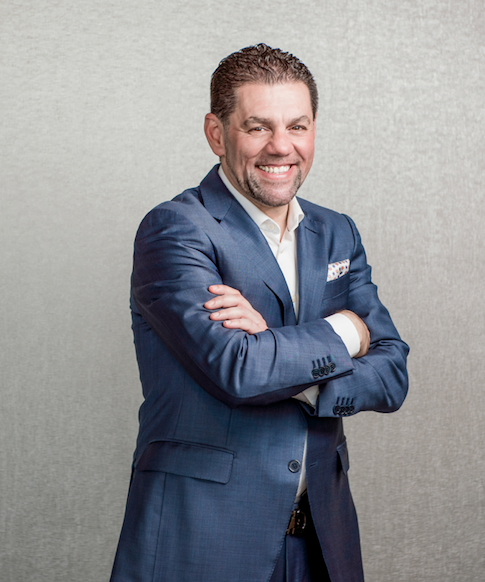

How important is it to mobilize and act swiftly to help communities in a time of need?
Acting fast is what business people do. They do it in their business and they should apply the same [principles] in the community. For the last 20 years, we’ve been hearing about social corporate responsibility. People used to ask me why I was going to help the community instead of putting up an ad somewhere. It’s because your community becomes loyal to you. You shouldn’t do it for that—it’s not only about financial interest—but it brings you loyalty and a better system because there is nothing stronger than a loyal customer. People will never forget if someone stood beside them in a time of need.
There’s this definition of financial independence that everybody is racing towards. I always wonder what would happen if, God forbid, you die before you reach that financial independence? What kind of legacy would you leave behind? Did you cut your staff or not raise people properly? Did you donate to your community? Holding your values has to be included in your plan to get to financial independence.
I hope more CEOs will believe that helping your community is the best investment you can make after investing in your people. And when you invest in your people, they’ll also invest in their communities. It is an ecosystem.
What is your mission?
Surrounding yourself with a team that actually believes in you and your mission is impactful and guarantees the bottom line. People will say to me that the customer always comes first but I say no. As a CEO, my people should come first. And when I look after my people, they will look after my customers. For anyone in a position of power, our people must come first. Especially after this pandemic, we have to be kinder. That’s the mission and the vision of Paramount—to create a kinder work environment and a place where people can build their own vision and mission with you. They are a part of the creation of a place where they can feel a sense of ownership. There is data out there that shows that people don’t stay with companies just because of a salary, but because they want to be part of something they can be proud of and that’s where purpose becomes part of the DNA of your company. When you treat your people well, they will not leave and you will be able to cultivate great talent and look after your community.
[yikes-mailchimp form=”1″ title=”1″ submit=”SUBSCRIBE”]


